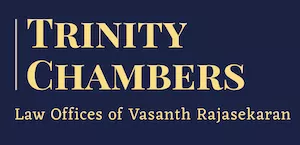- within Government and Public Sector topic(s)
- in India
- within Government and Public Sector topic(s)
- in India
- with readers working within the Metals & Mining and Construction & Engineering industries
- within Government, Public Sector, Technology and Corporate/Commercial Law topic(s)
Introduction
In a recent decision, the Calcutta High Court in Amjad Hossain v. the State of West Bengal1 has reaffirmed an important constitutional principle: when an authority falling within the definition of "state" under Article 12 of the Constitution fails to discharge its legal obligations, the writ jurisdiction of the High Court under Article 226 may be invoked to compel compliance.
While contractual disputes involving private parties are generally beyond the jurisdiction of the Writ Court, this decision highlights that when a public authority admits liability but unjustifiably withholds payment, the Court is authorised to intervene to protect the fundamental rights of the affected party.
Brief Facts
The petitioner, a contractor, was awarded a Work Order on 26 September 2018 pursuant to a municipal tender for civil construction works. The works were duly executed and certified by the municipality through Work Completion Certificates dated 2 September 2019 and 6 May 2022. Notably, the municipality raised no objection to the quality or completion of the works.
A part payment of ₹22,48,000 was released in favour of the petitioner. However, the balance of ₹22,90,039 remained unpaid. Despite multiple requests dated 2 March 2020, 22 August 2023, and 10 January 2025, as well as an official acknowledgement issued on 23 August 2023, the amount was not released.
The municipality admitted that the works had been completed satisfactorily and sought release of funds from the State Government. The State, however, contended that funds were sanctioned in bulk and not on a project-wise basis, and since further approval had not been granted, disbursement could not be made.
Observations of the High Court
The High Court held that the contractual relationship between the petitioner and the municipality was established beyond dispute. The tender process, issuance of the Work Order, completion certificates and the part payment all demonstrated acknowledgement of liability. Once the works were completed to the satisfaction of the municipality, it was a legal obligation on the part of the authority to ensure payment of the full contractual amount.
The High Court observed that withholding an admitted sum without any lawful justification amounted to a clear violation of the petitioner's rights. The money due was the petitioner's property and could not be withheld without lawful authority. In such circumstances, when an authority under Article 12 of the Constitution fails to fulfil its obligations, the plenary power of the High Court under Article 226 may be exercised to direct the authority to discharge its duties so as to prevent infringement of constitutional rights.
The High Court found that once the work was completed and duly certified, the municipality had no justification for withholding the balance payment. The sum claimed was an admitted liability and had already been partly paid, which clearly demonstrated an acknowledgement of debt.
Withholding the remaining amount without a lawful reason was deemed unjust and a violation of the petitioner's rights. The High Court emphasised that the funds owed belonged to the petitioner and could not be retained merely due to administrative delays or internal approvals. In such cases, where a public authority fails to fulfil its obligations, the High Court possesses full authority under Article 226 to intervene and safeguard the rights of the affected individual.
In such circumstances, the High Court directed the petitioner to pay the remaining amount of INR 22,90,039 along with interest at 6% per annum to be computed from 2 March 2020, i.e., the date of the initial request letter dated.
Comments
This decision sets a vital precedent in protecting contractors engaged in public works from having their payments withheld arbitrarily. It calls for financial discipline in municipalities and State authorities and also restores confidence among contractors that their legitimate claims will be judicially safeguarded. For practitioners, the case is a reminder that writ jurisdiction is an effective remedy against the inaction of Article 12 authorities in the contractual domain, particularly where work is completed and certified without dispute.
* Founder and Head at Trinity Chambers, Delhi.
** Counsel at Trinity Chambers, Delhi.
*** Associate at Trinity Chambers, Delhi.
Footnote
1 Amjad Hossain v. the State of West Bengal, 2025:CHC-JP:201.
The content of this article is intended to provide a general guide to the subject matter. Specialist advice should be sought about your specific circumstances.




